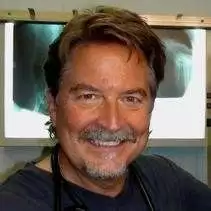
Celiac.com 05/24/2019 (originally published 10/08/2010) - I need to do some studying about the individual recommendations, as I am still not well-versed in many of these alternative therapies. However, I think I can dig most of it out now with what I have picked up from others over the years. It all makes sense to me through my newly-opened eyes.
We don’t talk much about the virus(es) involved in canine lymphoma, even though it is known to be viral in most other affected species. The big question is whether pleomorphic bacteria are also involved, as they are now suspected to be by many researchers in human cases of Hodgkin’s lymphoma. This makes sense as viruses and bacteria act as a “tag-team” in both normal adaptation in the day-to-day life of the cell as well as the “over-adaptive” processes we call disease, including “autoimmune disease” and cancer. Bacteria are interacting with the mitochondria, driving the cellular metaplasia (and “precancerous” changes) while viruses are interacting with the nucleus, driving the rapid cellular division that characterizes cancer.
The question then becomes: What is the real reason “malignancy” occurs? What is/are the factors in this syndrome that make one tumor become more aggressive than another? Is it an additional virus or pleomorphic bacteria that completes picture…a helper virus as some describe it? To a degree, this is academic because the approach is the same- we need to stop doing what we are doing that has caused this in the first place. Cancer is simply a spectrum disorder and the natural consequence of our not dealing properly with “phase two”—the “autoimmune diseases”, in which the immune system is desperately trying to get this mess under control so that the cells and their adaptive residents (viruses and bacteria) don’t feel compelled to start forming tumors (cocoons) to protect themselves from the toxic environment in which they find themselves.
“Disease”, including cancer, is no longer a mystery at all, is it? The only differences between one disease and another is the different viruses and bacteria involved (many of which are lurking in the DNA, passed down through the generations), the various triggers (toxic insults we throw at them), and the cell/organ involved. The age and rapidity of onset is determined by concurrent illnesses (malnutrition/leaky gut, hypothyroidism, adrenal and pituitary dysfunction, gonadal insufficiencies, etc.), most of which can be connected to the same leaky gut, malnutrition, and toxic insults that we believe contributed to the cancer.
So…the logical approach is to reestablish wellness as quickly as possible by healing the gut (the removal of gluten, et al), providing a biologically appropriate, eliminating as many environmental toxins as possible (e.g. fluoride, pesticides), identifying and treating the concurrent illnesses (e.g. hypothyroidism), and then addressing the viruses and bacteria that are involved in the process. (Knowing what we now know about pleomorphic bacteria and cancer, could antibiotics help?…or would they do more harm than good by forcing these bacteria into adapting further???)
Thankfully, by taking the steps outlined above, we often won’t have to address the viruses and bacteria specifically as they will be satisfied with our efforts and go back to doing what they were doing before we bombarded them with all of the toxic insults, which was helping the cells to adapt to change. But in the case of cancer, we have our work cut out for us. The individual with cancer has had some degree of immune failure, at least at a local level, for cancer to have occurred. In these “end game cases”, we have to do everything right, which brings into question the logic behind the use of carcinogenic chemotherapy.
In the cases of overwhelming bacterial infections (which primarily occur because of weakened immunity and toxic insults), we frequently have to pull the afflicted individual from the fire by using powerful antibiotics, killing the “offending” bacteria, which were often normal residents of the body before they were forced into replicating at a pathological rate, due to the toxic environment in which they found themselves, and often in a body that is repeatedly insulted by malnutrition, pollutants (e.g. air pollution, cigarette smoke, dietary insults), and poor lifestyle choices. Whose fault is it that these normally-helpful microorganisms rebelled???
So…once again…in the case of cancer, do we occasionally need to pull out the big guns that bring down the strongholds of these scapegoats we call viruses and bacteria? Do we sometimes need to blast their cocoons with harsh and potentially carcinogenic chemotherapy in order to pull the afflicted from the fire in the same way that antibiotics, anti-fungals and anti-virals are used to rescue the less-afflicted???
I contend that we wouldn’t if…IF…we could correct enough of the underlying causes. But…that’s a big “if”. Can we eliminate enough carcinogens with our patients living in polluted cities? Can we provide them with a perfect diet to reverse the catastrophic malnutrition from which many suffer? Can we give them all purified water, free of the fluoride and other toxins commonly found in the general water supply? Can we convince them to leave a highly polluted city (e.g. NYC, Boston, LA, Atlanta, Phoenix, Mobile) that is assaulting them with more than enough carcinogens and neurotoxins to place them firmly in the predicament in which they find themselves? Can we give them enough antioxidants, nutriceuticals, essential oils, and homeopathic remedies to undo the years of physical abuse and poor lifestyle choices that led to this calamity?
Sadly, in most cases, the answer is “no”. But that doesn’t mean we can’t try. That is the main difference between us and the classically-trained, allopathic doctor: We are at least considering our role in this and making use of what we learned in basic Sciences about how the body truly works. Isn’t it amazing how the first years of medical school (the basic Sciences of Anatomy, Histology, Pathology, Physiology, etc.) are almost completely wiped out by the final years of clinical work? Suddenly, we have a pill for everything and are focusing on drug dosages and interactions, having completely forgotten WHY the body does what it does. Is this brain-washing an accident or intentional on some level? One has to wonder.
The true role of our residential organisms (viruses, bacteria, fungi and parasites) is one of the most amazing things I have learned in the past ten years. Once we grasp (or re-grasp) the adaptive process—the fact that there are living entities that move in and out of cells reporting on and adapting to the outside environment, the mystique of medicine disappears and “greater things” become possible. But the limitations in the lives of the afflicted individual are both real and saddening. For them, we have to do exactly what we are doing here: Come up with the best compromise.
In the case of cancer, is the tumor/process life-threatening enough to warrant further intoxicating the body? Will a solitary tumor or enlarged lymph nodes kill the patient? Is the systemic cancer like lymphoma causing enough organ dysfunction to justify the use of immunosuppressive drugs (e.g. prednisone) and carcinogenic chemicals, both of which are illogical once we know that the true underlying “causes” are viruses and bacteria that have simply (and visibly) rebelled in response to our own wrong-doing, including trashing our immune system so thoroughly that it can’t control the process even without the addition of more immune-suppressing drugs?
We are our own worst enemy. But…at least we know that now.








Recommended Comments
Create an account or sign in to comment
You need to be a member in order to leave a comment
Create an account
Sign up for a new account in our community. It's easy!
Register a new accountSign in
Already have an account? Sign in here.
Sign In Now